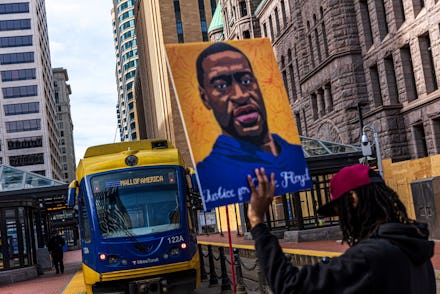Derek Chauvin isn't a "bad apple." He's a symptom of rotten system

It's a common refrain among those who push back against the notion that policing in the United States is a fundamentally flawed system, rife with racial prejudice and corruption: It's just a "few bad apples" who ruin things for all the good cops out there. If only police departments could just root out these few and far between rotten cops — then things would be just fine!
The "bad apples" defense offers something of an inverted analysis of law enforcement, wherein rampant systemic failures are treated as a symptom, rather than a root cause, of police abuse and misconduct. And with police abolition movements struggling against national headwinds, prosecutors in the murder trial of former Minnesota police officer Derek Chauvin have chosen to portray Chauvin, accused of murdering George Floyd on a Minneapolis street corner, as the exception, rather than the rule, for a department with a longstanding reputation of abuse and violence. Chauvin, they want the jury to believe, is simply a particularly bad apple.
"You will learn that on May 25, 2020, Mr. Derek Chauvin betrayed this badge when he used excessive and unreasonable force upon the body of Mr. George Floyd," special prosecutor Jerry Blackwell stressed to the jury during his opening statements in Chauvin's trial, which began in Minneapolis on Monday. That idea of betrayal is one Blackwell returned to over and over again during his remarks, highlighting a number of police witnesses who would, he explained, show just how out of bounds Chauvin's behavior that day was. Among the witnesses promised by Blackwell are a number of police training experts who will testify that the nine minutes and 26 seconds — yes, up from the eight minutes and 46 seconds that had been so famously reported, thanks to the prosecution's painstaking examination of the video of Floyd's death — Chauvin spent kneeling on Floyd's neck were well beyond any legitimate law enforcement technique.
In fact, Blackwell said, Chauvin's behavior was so alarming that multiple witnesses of his assault on Floyd "called the police on the police" — including a 911 dispatcher who, watching from a fixed police camera on the scene, was distressed enough to make their own call to a police supervisor in order to get someone to intervene.
Perhaps most significant of all, Blackwell announced that Minneapolis Police Chief Medaria Arradondo will testify against his own former officer and tell jurors that Chauvin's behavior violated the use-of-force rules for the MPD. "This is not about all police or all policing," Blackwell reiterated, in a clear attempt to separate Chauvin from the MPD herd.
As a prosecutorial technique, the decision makes sense. Despite the Minneapolis Police Department's well-earned terrible reputation, efforts to tar the city's police with a single abolitionist brush have stalled — a sign that the department still enjoys support from enough Minneapolis residents (and self-interested out-of-towners) to withstand any frontal assault on its authority, for now. Given the apparent support for the MPD, and policing as a whole, it's understandable why prosecutors would then frame Chauvin as the outlier who sullied an otherwise noble profession. It's an attempt to blunt any effort on the part of the defense to frame their client as simply working an impossibly difficult job that is beyond the comprehension of ordinary civilians.
Indeed, that seemed to be — at least in part — what Chauvin's defense team had in mind. During their opening statements, the defense attorneys emphasized that Chauvin "did exactly what he was trained to do over the course of his 19-year career," adding, "The use of force is not attractive but is necessary."
The prosecution's tactic might very well work in this instance, specifically — certainly Chauvin's actions that day set him apart from the other cops on the Minneapolis streets at the same time. But if prosecutors succeed in convicting Chauvin along those lines, all they will have done is plucked a single bad apple from a tree that seems prone to growing more and more rotten fruit. At some point, for there to be real change, the whole tree is going to need to be examined, from root to branch. Plucking a bad apple is a start, but ultimately, that's all it is.